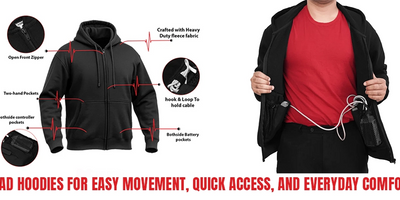
Are You an Organ Donor? Would You Like to Save 8 Lives?
A patient with an LVAD often waits for 2 to 3 years to get a permanent treatment, a heart transplant. Why is that? Because there aren’t enough organs to meet the demand.
Organ donation is one of the most selfless and life-changing sacrifices we can offer. Can you imagine giving hope to a person waiting for some miracle to happen? We can understand better if we are the ones praying for our loved one who is dealing with end-stage organ failure.
Many patients rely on palliative care or temporary treatment simply because a healthy donor organ is not available. Did you know that the challenge is not just medical? According to a study, ethical concerns, lack of awareness, and mistrust make it even harder to fill the gap between organ supply and demand. It is also important to have clear rules to keep donors and recipients safe.
Whether you are donating to a loved one or registering as a donor for strangers in need, your decision has the power to create a positive change. How does it feel to know that your decision could bring healing, gratitude, and new beginnings to someone else’s life? It will be a powerful initiative that, even when you are dealing with a loss, you can save lives.
Why Organ Donation Matters?
Do you know that a significant number of people are waiting for an organ transplant, and some are losing their lives every day? A 2015 study concluded that organ transplants saved more than 2.2 million life-years during the 25-year period. This highlights the urgency of organ donation and why it matters
Organ donation is a strong decision that has the ability to save more than one life at a time. We understand that choosing to become an organ donor is not an easy thing. You have to be selfless and think about others even when your life or your loved ones' lives are at stake. It is precisely this selflessness that makes organ donation one of the most extraordinary gifts we can give.
Organ donation matters because it can save up to eight lives. Every day, thousands of patients wish for a miracle to happen. Believe me, nothing will make you happier than deciding to save not one, not two, but 8 whole lives and bring hope to eight families. You can be the change this society desperately needs.
How One Donor Can Save Up to 8 Lives?
Surprisingly, many people don’t realize that one organ donor can save up to eight lives. Yes, you read it right. A single donor can save a patient with kidney failure, heart failure, and liver failure, as a single donor can give the heart, lungs, liver, kidneys, pancreas, and intestines to different patients according to their needs.
Imagine a situation where a person is suffering from heart failure and needs a suitable donor. He can live longer if he gets a new, healthy heart. But he often receives only supportive treatments like medications and surgery, so that, can live until he finds an organ donor.
The families have to wait for years for a heart transplant as part of permanent treatment. That is why understanding congestive heart failure and the need for emergency treatment is essential for us, because the demand for organs is far greater than the supply.
Why do LVAD patients need an organ transplant?
LVAD is a Left Ventricular Assistive Device that helps your weakened heart pump blood throughout the body. It only compensates for the insufficient blood supply, but it does not treat the root cause of the disease. Your doctor may suggest that you go for LVAD implantation to live while waiting for a new heart. In this situation, your LVAD becomes a bridge to transplant.
Your journey to complete recovery remains incomplete until you get an organ transplant, which is only possible through an organ donation. LVADs are not always permanent, and patients depend on organ donors. Organ donation gives these patients a chance to heal and return to a normal life fully.
Real Life Experience from LVAD to New Life through Transplant
Over 100,000 people are waiting for an organ transplant in the United States alone, including men, women, and children, and 13 people are losing their lives each day. So, there is a need to raise awareness of the program. Many patients who have received a heart transplant after having an LVAD are the living proof of how an organ donation has saved their lives. If a person chooses to donate, then he alone can save 8 lives at once.
We have a real-life example of Brent Lemay, who received a heart transplant. He was born with a genetic defect in his heart. After having three heart attacks and triple bypass surgery, he received an LVAD, just to wait for another 2 years to get a heart transplant.
During these years, waiting for a transplant, he lived every day just like his last day. But when he received a heart transplant, he was able to do the things that he had previously taken for granted. He is now repaying the person who saved his life by living every moment to the fullest.
He lived with an LVAD for two years, and for that reason, he also knows how it can be difficult sometimes to live with an LVAD. For this reason, he started a business of LVAD clothing to help people who need extra support while waiting for their heart transplant.
LVAD Gear’s Commitment to Life & Awareness
At LVADGear, we are on a mission not just to create comfortable clothing and functional apparel, but we are also committed to supporting patients with LVAD and honoring the heroes who make life possible through organ donation. Every product is inspired by the courage of those living with LVADs and the incredible kindness of donors who give the gift of life.
We celebrate strength and second chances by supporting the LVAD community while paying tribute to the donors who make them possible. LVAD apparel is dedicated to comfort, dignity, and raising awareness about the power of organ donation.
How can you be a part of raising awareness?
- You can also spread awareness on the importance of organ donation and be part of the positive change.
- Motivate yourself and others to be a living donor, where you can donate a portion of your liver and a single kidney.
- Support the patients by engaging in conversations about the importance of being a donor and how it can benefit both the donor and the recipient.
- Get in touch with communities like the UNOS group, which works to inspire people, give hope to the patients waiting for an organ transplant, and take action with the contract of government.
- You can also guide about the second chances of having a support like LVAD and proper LVAD Gear to make their life less complicated. Support patients on LVAD by suggesting that they use LVAD shirts and LVAD Heartmate vests while they're on the waiting list for organ donation.
- Share real-life experiences around you.
- Talk to your family and friends. It might inspire someone else to be a part of this change.
Final Thoughts
Choosing to become an organ donor is more than just a decision. It is a profound act of compassion and hope. Even if you cannot donate, you can raise awareness and support people to donate organs, so that you can also be a part of this change. Your willingness to participate can inspire countless others who can actually donate and have the potential to save up to eight lives at once and bring hope to those in need. This is how one decision of organ donation can change everything for someone else.
FAQs
What is an organ transplantation?
Organ donation is a surgical procedure in which a healthy donor donates an organ to another person whose organ is damaged due to a terminal disease.
Who can be a donor?
Anyone older than 17 years who has good general health and is free from any major health issues can donate an organ.
What is a living donor?
A living donor is a person who is donating an organ while being alive. In such organ donations, you can donate a part of the liver and one kidney, but not a whole organ, like a heart.
Do you think that everyone should donate their organs after death?
Everyone has the right to make their own decision, especially in a sensitive situation like donating an organ after death. It can be a selfless decision that can save lives, but it usually comes with different perspectives.
Who cannot donate organs after death?
If a person has an active infection, is on certain medications, and is dealing with a disease like cancer or HIV, he or she cannot donate an organ after death.
Prev post

Custom-Made LVAD Shirts vs. Ready-to-Wear Options
Updated on 18 November 2025
Next post

Why LVAD Shirts Are Essential for HeartMate 3 Patients?
Updated on 12 November 2025








